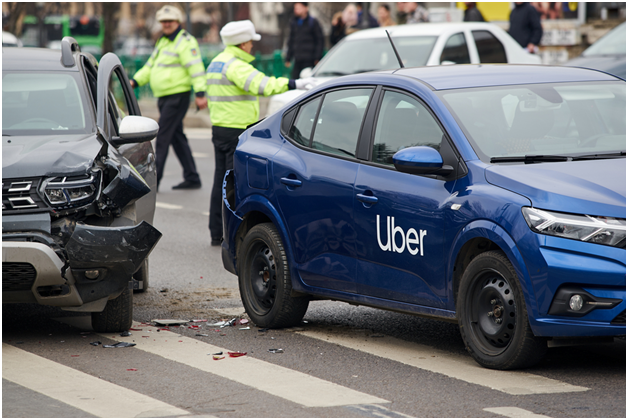When you’re riding in an Uber or Lyft and get into a crash, the main question is: who’s liable or responsible for paying your medical bills, car repairs, or other damages? The answer mostly depends on the driver’s status at the time of the accident.
This can get tricky because personal insurance might not cover rideshare accidents, or it could have limits. That’s why knowing your rights and how insurance works is key. You don’t want to be stuck paying out of pocket when you’re not at fault.
In case you were hurt in an accident involving an Uber or Lyft, then it is recommended that you get help to file a rideshare accident lawsuit, and the best help you can get is from an Uber/Lyft accident lawyer.
Contents
If you’re an accident victim wondering how you’ll get paid, here are the options available to you:
If the driver had the app open and was actively transporting a passenger or driving to pick up one, Uber or Lyft’s insurance usually pays for the damages. This coverage can be up to $1 million, which includes medical bills and any damage to property. So, if the driver was “on the clock,” meaning logged into the app and either driving a passenger or heading to pick them up, the rideshare company’s insurance generally takes care of the accident costs.
But what happens if the driver is just logged in and waiting for a ride? The coverage remains, but it’s usually at a lower limit. If the accident causes damage that exceeds the insurance limits, you might need to rely on the driver’s personal insurance or even your own insurance.
The driver’s insurance
If the driver is completely offline and not working for Uber or Lyft, their personal insurance is what you have to turn to. Unfortunately, personal policies sometimes don’t fully cover accidents involving rideshare driving, especially if the driver wasn’t supposed to be working at the time.
Your own insurance
If you have your own car insurance or health insurance, sometimes they can help pay for certain costs. For example, your health insurance might cover your medical bills first, and then they might try to get money back from the rideshare insurance later.
Compensation from a lawsuit
If the accident wasn’t your fault, you could also get compensation by filing a claim against the driver or the rideshare company. That means you or your lawyer asks them to pay for your medical bills, any damage to your stuff, lost income, and sometimes even pain and suffering.
Sometimes, if the driver was very careless or broke traffic rules, you might be able to sue for extra money beyond just bills. But that depends on the situation and the laws where you live.
Steps to Take After an Uber or Lyft Accident
If you’re involved in a rideshare accident, there are some important steps you should follow to protect your rights and make sure the right people pay for your damages.
First, check if anyone is hurt and call for medical help if needed. Safety comes first.
Next, contact details and insurance info should be exchanged with the Uber or Lyft driver. Take photos of the crash scene, including all vehicle damage and any visible injuries. This evidence will be critical when it’s time to file a claim.
Don’t forget to gather contact information from witnesses, if there are any. Their statements can support your case later on.
It’s also important to call the police and file an official accident report. This makes it easier to prove what happened when dealing with insurance companies.
Finally, report the accident to Uber or Lyft through their app or customer service. Sometimes drivers won’t report crashes themselves, and the rideshare company needs to know what happened to start their insurance process.
























